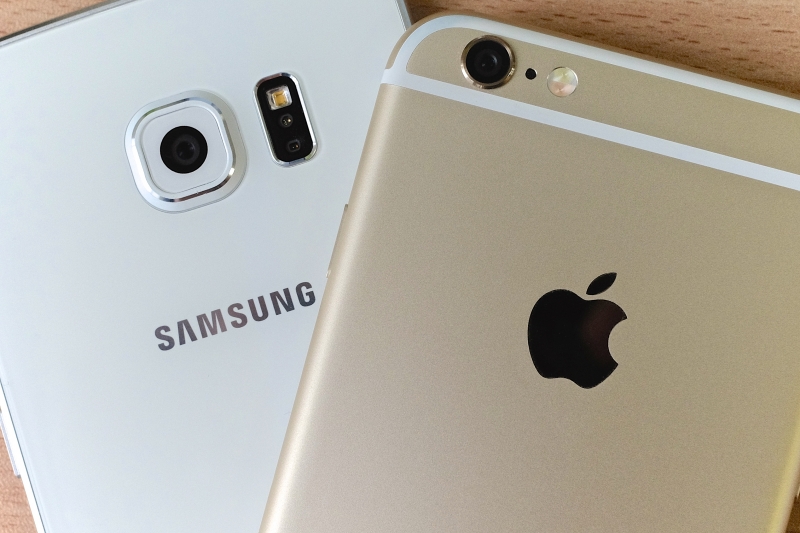The U.S. Court of Appeals for the Federal Circuit ruled on Thursday that Apple should have been awarded an injunction barring Samsung from selling products that infringe on the iPhone maker's patents.
In May 2014, a lower court denied Apple an injunction against Samsung after a jury ordered the South Korean company to pay $120 million for violating patents for the iPhone's slide-to-unlock, autocorrect and data detection features. The Washington-based appeals court reversed this decision in a 2-1 ruling. It said that Apple's proposed injunction is narrow because it does not want to ban the devices from the marketplace and that the patented features can be removed without a product recall.
"Apple does not seek to enjoin the sale of lifesaving drugs, but to prevent Samsung from profiting from the unauthorized use of infringing features in its cellphones and tablets," the court said. The case was sent back to a federal district court in San Jose, California, to reconsider the injunction.
It does seem that Apple's win may be largely symbolic; Samsung told the court it had ceased selling nearly all of the products that were originally at issue in the case such as the Galaxy S2 and Note 2. It also said it could design around the features, meaning the ruling is unlikely to have much of an impact on Samsung's business.
"We will pursue our rights to have the full Court of Appeals review today's decision. We want to reassure our millions of loyal customers that all of our flagship smartphones, which are wanted and loved by American consumers, will remain for sale and available for customer service support in the US," Samsung said in a statement.
Samsung had received the backing of some of Silicon Valley's biggest players, including Facebook, Google, Dell and HP, in its patent infringements battle with Apple. The companies worry that the final outcome of the case could have far-reaching implications when it comes to patent violations in complex devices such as smartphones. It's also thought that Apple could use an injunction on newer Samsung devices if they believe them to infringe on the patents at issue.
